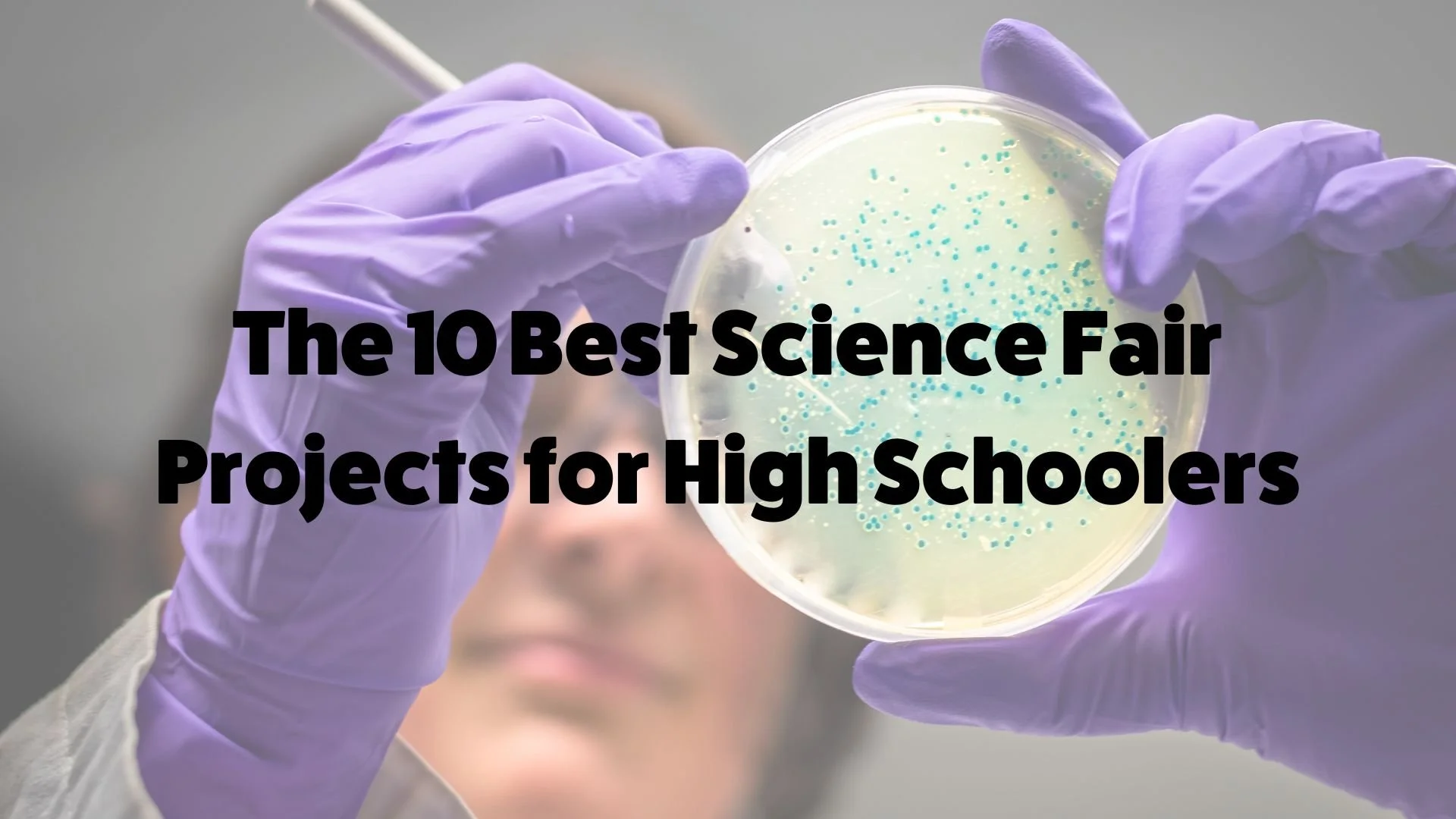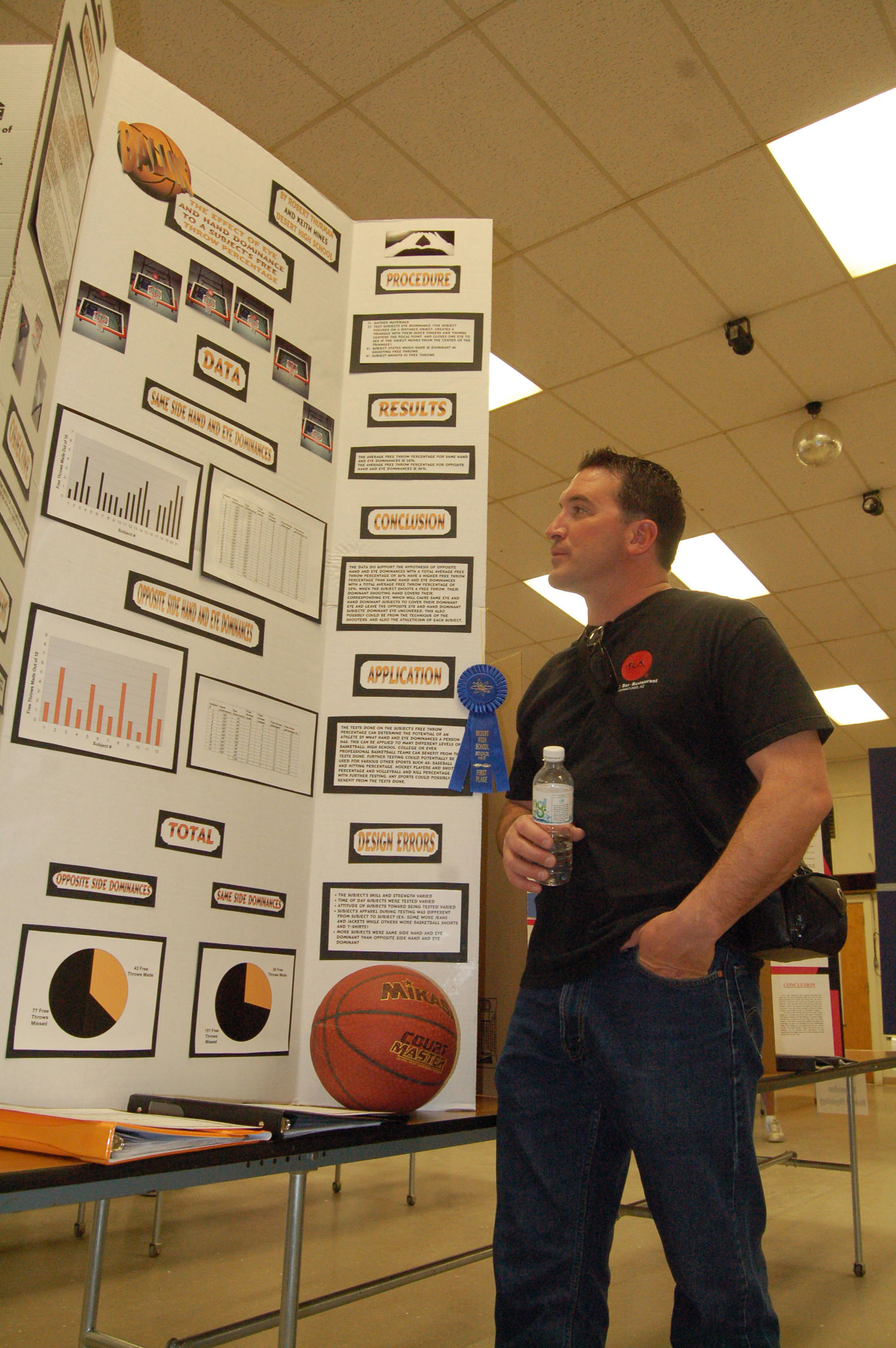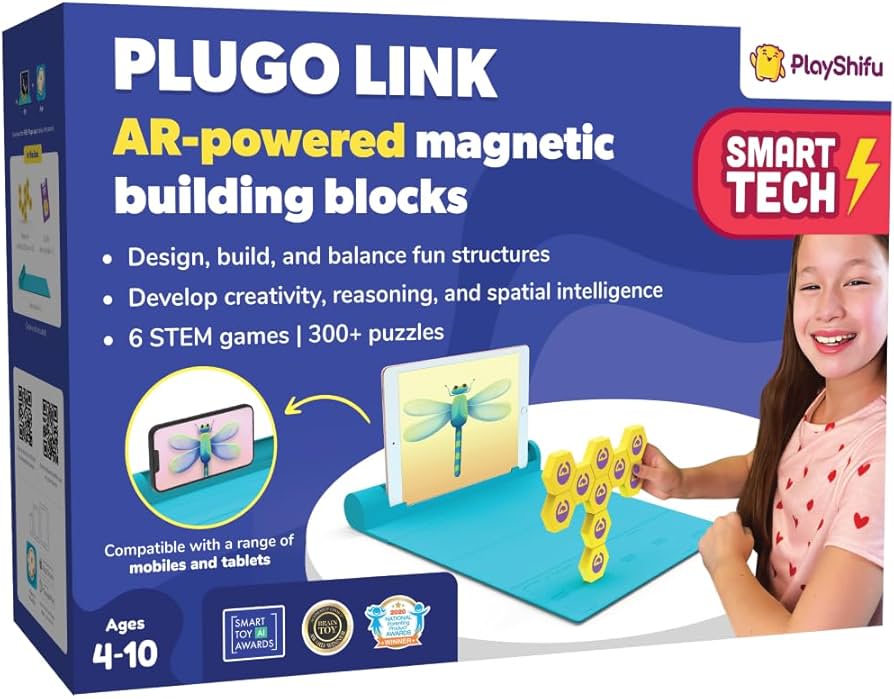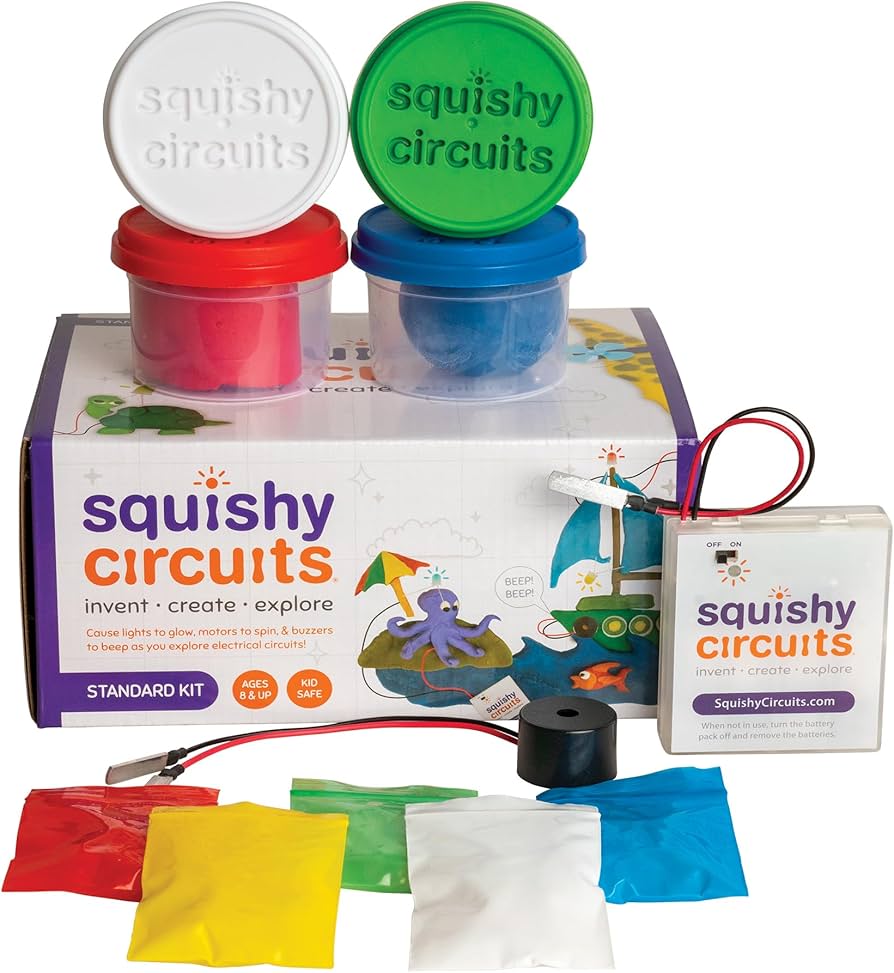Science fairs ignite curiosity and creativity among high school students. They promote exploration and experiential learning.
So, what are you waiting for? Let the science fair projects begin! These projects are an excellent opportunity for students to see how their class learnings can be applied to and help solve real-world problems. It is comprised of asking questions, making conjectures, and testing those conjectures.
It’s a discovery process that can produce extraordinary discoveries. In addition to increasing scientific knowledge, science fairs help develop critical thinking and problem-solving skills. Whether you are starting or switching to a new hobby, these ideas will lead you in the right direction toward your projects and make the task fun and a great learning experience. So roll up those sleeves and get ready for hours of exploration, experimentation, and maybe inspiration for your science endeavors.

Credit: www.youtube.com
Choosing The Right Project
Picking the right project can help establish a strong foundation for your entire science fair experience. It’s exciting and fun but can be a little overwhelming. Pick a project that you will be excited to work on for weeks on end. Let’s go through the process to make the best decision you can for your science fair project.
Consider Your Interests
Make a list of the subjects you like the best. Are you passionate about biology, chemistry or physics? Your passion for a subject should drive your science fair project. If you love space, do your project on the solar system. If you’re a plant person, perhaps botany would drive you crazy. The right topic keeps you motivated and motivated.
Evaluate Resources
Take stock of what you have lying around the house, or you can access it easily. Some projects may require you to have special equipment. Others may need just basic household items.” Ensure you have access to all the things you require. And remember to value your time, too. Other projects take a while until they are finalized. Make sure that you have sufficient time to complete your project properly.

Credit: www.inspiritai.com
Environmental Science Projects
Environmental science projects can captivate high school students. They explore critical issues and provide hands-on learning. These projects promote awareness of our planet’s health. Students can choose various topics, from renewable energy to climate change. Below are some exciting project ideas for high schoolers.
Renewable Energy Models
Creating renewable energy models is an exciting project for students. They can design working models of solar panels, wind turbines, or hydroelectric dams. These projects teach about clean energy sources. They also show how we can reduce reliance on fossil fuels.
Here are some project ideas:
- Solar Oven: Build a solar oven to cook food using sunlight.
- Wind Turbine: Create a small wind turbine to generate electricity.
- Hydroelectric Generator: Design a model that uses water flow to create power.
Climate Change Effects
Projects on climate change effects help students understand global warming. They can study its impact on the environment and biodiversity. These projects encourage students to think about solutions.
Consider these project ideas:
- Ice Melt Experiment: Study how rising temperatures affect ice caps.
- Carbon Footprint Analysis: Calculate and analyze the carbon footprint of daily activities.
- Climate Change Impact on Plants: Observe how different plants respond to changing conditions.
These projects are educational and engaging. They help students appreciate the importance of environmental science. They also provide practical skills for future studies.
Biology And Health Projects
High school science fairs offer a great chance to explore the world of biology and health. These projects not only deepen understanding but also spark curiosity. The possibilities are endless, from genetics to the human body.
Genetics Experiments
Genetic experiments can be fascinating. They help students understand how traits are passed down. Here are some ideas:
- DNA extraction from fruits like strawberries.
- Study dominant and recessive traits in your family.
- Investigate genetic mutations in plants.
- Create a family tree and track inherited traits.
These experiments can be simple but revealing. They show how genetics shape living things.
Human Body Studies
Studying the human body can be fascinating. These projects give insight into how our bodies work. Here are some ideas:
- Measure the effect of exercise on heart rate.
- Study reaction times in different age groups.
- Examine the impact of sleep on concentration.
- Compare the strength of different muscles in the body.
These studies can be practical and informative. They help us understand our bodies better.
Physics And Engineering Projects
High schoolers are often tasked with creating science fair projects that showcase their understanding of complex concepts. Physics and Engineering Projects are a great way to demonstrate practical skills and creativity. These projects not only engage students but also provide a platform to explore real-world applications of science.
Bridge Building
Bridge-building projects are a favorite among physics and engineering enthusiasts. These projects test your understanding of structural integrity and materials science.
Begin by selecting the type of bridge you want to build. Common types include truss, suspension, and arch bridges. Each type has unique strengths and weaknesses.
| Bridge Type | Strengths | Weaknesses |
|---|---|---|
| Truss | Strong and stable | Complex design |
| Suspension | Can span long distances | Expensive materials |
| Arch | Visually appealing | Limited span |
Once you choose a bridge type, gather materials such as popsicle sticks, glue, and string. Build a prototype and test its load-bearing capacity. Document your findings and make adjustments to improve the design.
Robotics Innovations
Robotics projects are perfect for students interested in coding and mechanical engineering. These projects can be as simple or complex as you like.
Start by defining the robot’s purpose. Do you want it to move objects or navigate a maze? Once you have a goal, list the components you need:
- Microcontroller
- Motors
- Sensors
- Wires and connectors
Assemble the hardware and write the code to control the robot. Test it under different conditions to see how it performs. Modify the design and code based on your tests. Show your robot’s capabilities during the science fair and explain the engineering principles behind its design.
Chemistry Projects
High school science fairs are an exciting way to explore the wonders of chemistry. They provide hands-on experience and deepen understanding. Chemistry projects can range from simple experiments to more complex investigations. They can be fun, educational, and inspiring.
Chemical Reactions
One fascinating area of chemistry is chemical reactions. These projects help students learn about how substances interact. You can explore different reactions and observe changes. Here are some ideas:
- Experiment with acid-base reactions using household items.
- Create a volcano eruption using baking soda and vinegar.
- Investigate how temperature affects reaction rates.
These projects teach about reaction rates, products, and energy changes. They are visually engaging and easy to understand.
Material Science
Material science projects focus on the properties of different materials. Students can explore how materials behave under different conditions. Here are some project ideas:
- Test the strength of different fabrics by applying weight.
- Analyze the conductivity of metals versus non-metals.
- Explore how temperature affects material flexibility.
These projects help us understand material properties and their practical uses. They can be conducted with everyday items, making them accessible and educational.
By engaging in these projects, students gain practical knowledge. They develop a more profound interest in chemistry. Science fairs showcase their creativity and understanding.
Wanna buy those science kits? 100+ hands-on science kits, 50+ unique digital experiences Discover supermassive discounts 50% off your first box

Discover supermassive discounts Click Here.
Tech And Computer Science Projects
High School Technology and Computer Science Projects These projects provide the opportunity for students to develop new skills and investigate careers. They also present an opportunity to tackle real-world challenges. Now, let’s get into some fun areas.
App Development
The process of creating an app is an exciting one. Students can build something worthwhile and cool. Here are a few ways to begin:
- Brainstorm app ideas. Brainstorm a list of day-to-day problems to solve.
- Research existing apps. See what features they have.
- Design the user interface. Sketch out your buttons and screens.
- Learn a programming language. Try Java, Swift, or Python.
- Start coding. Leverage tutorials and online learning material.
Test the app. Debug and optimize performance.
Here are a few project ideas for app development:
- A homework planner.
- A language learning tool.
- A local event finder.
Learning to code a mobile app teaches you not just problem-solving but also your first steps in technical skills. Plus, it’s fun!
Artificial Intelligence
AI is revolutionizing several sectors. There are a lot of projects that high school students can do related to AI. Here are some ideas:
- Build a chatbot. Leverage AI to field frequent questions.
- Image classification system. Train it to identify objects.
- Build a recommendation system. Suggest books or movies.
Steps to Begin an AI Project
- Choose a project idea. Consider what you’re excited about.
- Learn the basics of AI. Familiarise yourself with concepts such as machine learning.
- Find a dataset. Public databases or self-crafted tools.
- Pick a programming language. Python is popular for AI.
- Use AI libraries. Try TensorFlow or PyTorch.
- Train and test your model. Improve it with more data.
Projects are often in AIs, where analytical and technical skills are developed. They also teach students to get ready for tech careers.
Mathematics Projects
Fun maths projects for advanced high school students. They provide an opportunity to investigate areas of mathematics that can be applied to real-world problems. Furthermore, these types of projects enable the enhancement of critical thinking and problem-solving skills among students. So why not make the move to these two interesting fields of statistical analysis and mathematical modeling?
Statistical Analysis
You need to know about data and thus projects on statistical examination. Students can collect data, for example, data on sports performance, weather, etc. Then, they can apply statistical methods to make sense of this data. Here are some project ideas:
- The number of hours study vs Test score
- Check out the age population of the local community.
- Exercise in mental health research.
Usually, such a project includes tables, graphs, and charts as a way of presenting the data. For example:
| Study Hours | Test Scores |
|---|---|
| 1-2 | 70-80% |
| 3-4 | 80-90% |
| 5-6 | 90-100% |
Mathematical Modeling
Mathematical modeling uses equations to represent something in the real world. ∂ This is useful for making predictions and modeling complex systems. Some project ideas include:
- Model of Population Growth in a City
- Forecasting the spread of disease.
- Traffic Flow Simulation in Metro Cities
These projects require students to apply algebra, calculus, and other mathematical tools. They can learn what it takes to build and test their models. As an example, a traffic flow project could include:
- Data collection on traffic patterns
- Building a model for peak traffic time prediction.
- Evaluating the model with accurate traffic data.
These types of projects can be very engaging and provide real-world experience in tackling everyday problems.

Credit: www.edwards.af.mil
Presentation Tips
It can be a nerve-racking time when you present your science fair project. It’s your moment to show off all of your achievements. Having good presentation skills helps a lot. Here are a few tips to help ensure a successful presentation.
Creating A Display Board
Your display board is the focal point of your presentation. It must be clear and easy to read. Text on the site and backgrounds should have big fonts and contrasting colors. Consider splitting the board into sections (e.g., Introduction, Method, Results, Conclusion). Include images and graphs for visual factors. All information must be clear and concise. Keep board space reserved for few to no words.
Practicing Your Speech
Rehearse your speech this way several times. Write a script if needed. Keep the speech clear and at moderate speed. Explain your project in simple language. Rehearse in front of friends or family members. Gather their input and iterate. Try to record yourself and check where you need to work on it. Be aware of your body language and eye contact. Be positive and maintain your calm while presenting.
Frequently Asked Questions
What are Good Science Fair Projects?
What makes for a great science fair project is a mixture of creativity, scientific method, and relevance. The results should be interesting and accessible.
How To Conduct A Science Fair Project?
Step 1: Selecting a Science Fair Project Based On Interests. Confirm it is possible, safe, and within the sciences.
Can you recommend simple science fair projects?
Of course, easy science fair projects could be growing crystals, constructing a volcano or an electric circuit.
What Supplies Do You Need For Science Projects?
Frequently used materials are poster boards, markers, measuring tools, household items, and particular scientific gear such as test tubes.
Conclusion
Although high schoolers are well beyond basic concepts and scientific principles, science fair projects provide better learning opportunities. They encourage curiosity and critical thinking. Students also reap the benefits of hands-on practice and solving problems. These projects could lead to future careers in science. They also give students a better understanding of scientific concepts. Involve them in science fairs even.
It’s a rewarding experience. Discover, engage and explore the marvel of science.
You Might Also Like:


